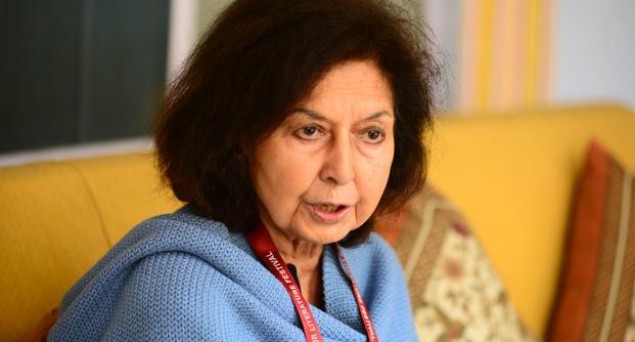By Amiya Jha,
This is for the first time that so many Indians have chosen to return the awards that they once coveted – and we know why. It is an impassioned response to the cascading wave of intolerance in the country, with few in the cultural establishment caring to speak up.
As former Bengal governor and Mahatma Gandhi’s grandson, Gopalkrishna Gandhi said this is a landmark moment. For though there have been instances in the past of people handing back honours, none so far has found so much resonance across such a wide spectrum. Starting with Nayantara Sahgal returning the Sahitya Akademi award that she won in 1986, many others followed her example citing similar grounds to justify their revolt.
Normally when someone returns an award one tends to question the motive – seeking of publicity or settling of scores for instance. But not in this case, which is to keep the talk alive; and happily not a day passes without more people returning the honours in a symbolic show of their protest against State repression.
The protest is at many levels, but is mainly directed against the Fascist culture that the BJP has been spawning in the mistaken belief that it will go unquestioned owing to its brute parliamentary majority. As The Hindu said in its editorial on Tuesday, “Their rejection of the honour is a symbolic reminder of the times, as a wave of intolerance cascades from Dadri even to the most cosmopolitan of Indian cities, Mumbai, threatening to choke the air. What the writers have reminded India is what its people are today witness to: a society turning upon itself.” Yes witness the assault on Sudheendra Kulkarni by Shiv Sena goons, though in this case realpolitik dictated that the BJP should oppose its alliance partner. But the mindset is the same.
In such a dire situation, premier institutions, notably the Sahitya Akademi, ought to have stood up for the dissenters. Instead it spoke not a word, as when Dadri and Mainpuri erupted or rationalists Dabholkar, Kalburgi and Pansare were murdered by alleged Hindu fundamentalists. The question being asked is why? Why, even as the akademi celebrates dissent in print, when it comes to standing up for it on the ground, it chooses to clam up.
Power and pelf are to blame, say some who are familiar with the akademi’s working. Said one who asked not to be named, “They know that for all the autonomy that it supposedly enjoys, its officials can, on any number of pretexts, be demoted, replaced, or eased out. And these are comfortable well paid jobs.” And that’s why, he said, most choose to keep quiet, as not all of them can afford to quit even if they wanted to; while those who can are “greedy with no conscience”.
Yet as the intellectual life of the country stares at the noose, pretenders like Mahesh Sharma have been handed absolute power to shape our cultural agenda, from “correcting history” to deciding who should be given charge of it. Had he and his Sangh Parivar been entrusted with reporting the Dadri lynching, it would all by now be seen as an “accident”, the result of a “misunderstanding” and so on.
The battle-lines have for long been drawn; but now finally it’s open war between the regressive Parivar and the Rest of India. And more and more it looks like the former is set to lose it. The protest is not limited to questioning the silence of the Sahitya Akademi. It is an anguished response to the general decline in values, attempts to divide Indian society along sectarian lines, and killing and maiming on the basis of mere hearsay, as recently happened in UP’s Dadri tehsil and Mainpuri district.
In 1979 as a trainee at India Today I recall a poster in our reception which said, “News is what someone somewhere is trying to suppress”. It was a faith with us all – and the good news is that 35 years on it still holds true for our media, among the most vibrant anywhere, and the vast majority of Indians. It’s the most powerful weapon that we have to counter these Fascist designs.
The 25 writers who have returned their awards come from many parts of the country, and it looks like turning into a pan-India movement. There are few takers for people like Hindi writer Mridula Garg who feel it’s wrong to equate the “autonomous” Sahitya Akademi with the government. For what in that case stopped it from exercising the said autonomy?
—
Amiya Jha is a senior journalist based in New Delhi. He can be contacted at [email protected].
—
The opinions expressed within this article are the personal opinions of the author. IndiaTomorrow.net is not responsible for the accuracy, completeness, suitability, or validity of any information on this article. All information is provided on an as-is basis. The information, facts or opinions appearing in the article may not reflect the views of IndiaTomorrow.net and IndiaTomorrow.net does not assume any responsibility or liability for the same.





